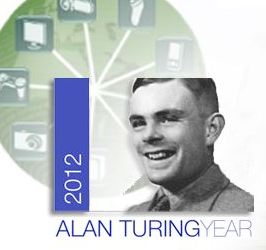Human-Computer Interaction & Knowledge Discovery @ Active Media Technology 2012, Dec. 4-7, Macau SAR, China
 Special Session
Special Session
Introduction and Program to Special Session 03 HCIKDD
https://www.fst.umac.mo/wic2012/AMT
Organization: Andreas HOLZINGER & Andreas AUINGER
Inquiries: a.holzinger AT hci4all.at – andreas.auinger AT fh-steyr.at
The Task Force HCI-KDD pursues an ultimate goal: to combine the best of two worlds: Knowledge Discovery, dealing with computational intelligence and Human–Computer Interaction, dealing with human intelligence. Pioneering into a previously unknown territory, there is a vast area of undiscovered land to explore. Seeing the world in data is awesome, allowing the discovery of novel areas, unexpected facets and intriguing insights of and into the fascinating science of data, information, and knowledge. One success factor is a cross-disciplinary view – from different fields, diverse subjects, different perspectives to have a fresh look for novel ideas and on finding the methodologies on how to put these ideas into practice. Some of the most pressing questions of nature are interwoven in these areas: What is information? What is life? What is computable? How can we build systems to facilitate understanding and sensemaking? We will hold at least one session per year.
This special session is organized in the context of the International Conference on Active Media Technology (AMT’12), December 4-7, 2012, Macau SAR, China and is a special celebration of the Alan Turing Year as part of the World computational Intelligence Congress WIC 2012 with focus on cross-disciplinary aspects of two fields of increasing importance in Computer Science: Human-Computer Interaction (HCI) and Knowledge Discovery from Data (KDD). The mission is to bring together researchers from diverse areas in a cross-disciplinary manner, to stimulate fresh ideas and encouraging multi-disciplinary work.
Accepted papers will be published in the conference proceedings by Springer as a volume of the series of Lecture Notes in Computer Science (LNCS). A selected number of the best papers will be published in special issues (see conference page).
We are confronted with increased masses of data – across all domains (e.g in biomedicine and health care) – and especially on the Web and Social Media. Research in Human-Computer Interaction (HCI), Information Retrieval (IR), Knowledge Discovery in Databases and Data Mining (KDD), has long been working to develop methods that help end users to identify, extract, visualize and understand useful information from huge masses of high dimensional and often weakly structured and/or non-standardized data. Our goal is to combine those efforts to support professional end users to interactively analyse information properties and to visualize the most relevant parts without getting overwhelmed. Ideally we speak of HI-CI – Human intelligence (HI) “meets” Computational intelligence (CI) by making computational methodologies and approaches interactively accessible to the domain expert to support them to solve complex problems in the real world. The challenge is to enable effective human control over powerful machine algorithms and to integrate statistical methods and information visualization, so as to support human insight, breakthrough discoveries and innovations, and decision making – primary research objectives in the field of Human-Computer Interaction.
Some hot topics of future research include but are not limited to:
- Multimedia Data Mining & Knowledge Discovery from big data (e.g from the biomedical informatics domain, social media etc.)
- Opinion Mining, Sentiment Analysis and Opinion Extraction (e.g. in the context of reputation management)
- Swarm Intelligence (collective intelligence, crowdsourcing) and collaborative Knowledge Discovery/Data Mining/Decision Making
- Intelligent, interactive, semi-automatic, multivariate Information Visualization and Visual Analytics
- Multimedia Data Exploration and interactive Content Analytics
- Time-Oriented Data and Information (e.g. longitudinal data, complex noisy time series)
- Novel Search User Interaction Techniques (supporting human intelligence with computational intelligence)
- Future Interaction Techniques (Note: science fiction of today is science fact of tomorrow)
- Modeling of Human Search Behavior and Understanding Human Information Needs
- Methods and Methodologies (e.g. Support Vector Machines, Boltzmann machines, Entropy Modeling, Evolutionary computing …)
- Text Mining (coomputational linguistics, Natural Language Processing, Web Mining, Web knowledge discovery, data extraction and Intelligent Information Extraction).
Have a nice and pleasant journey!
International Scientific Committee:
Joel ARRAIS, University of Coimbra, PT <expertise>
Mounir BEN AYED, Ecole Nationale d’Ingenieurs de Sfax (ENIS) & Universitaet de Sfax, TN <expertise>
Matt-Mouley BOUAMRANE, University of Glasgow, UK
Polo CHAU, Carnegie Mellon University, US <expertise>
Chaomei CHEN, Drexel University, US <expertise>
Nilesh V. CHAWLA, University of Notre Dame, US <expertise>
Tomasz DONAROWICZ, Wroclaw University of Technology, PL
Achim EBERT, Technical University Kaiserslautern, DE
Max J. EGENHOFER, University of Maine, US
Kapetanios EPAMINONDAS, University of Westminster, London, UK <expertise>
Massimo FERRI, University of Bologna, IT
Alexandru FLOARES, Oncological Institute Cluj-Napoca, RO
Ana FRED, IST – Technical University of Lisbon, PT
Adinda FREUDENTHAL, Technical University Delft, NL
Wolfgang GAISSMAIER, Max Planck Institute of Human Development, Adaptive Behaviour and Cognition, Berlin, DE
Hugo GAMBOA, Universidade Nova de Lisboa, PT
Michael GRANITZER, University Passau, DE <expertise>
Dimitrios GUNOPULOS, University of Athens, GR <expertise>
Helwig HAUSER, University of Bergen, NO <expertise>
Jun Luke HUAN, University of Kansas, Lawrence, US <expertise>
Anthony HUNTER, UCL University College London, UK <expertise>
Alfred INSELBERG, Tel Aviv University, IL
Kalervo JAERVELIN, University of Tampere, FI
Igor JURISICA, IBM Life Sciences Discovery Centre & University of Toronto, CA
Jiri KLEMA, Czech Technical University, Prague, CZ
Lubos KLUCAR, Slovak Academy of Sciences, Bratislava, SK
David KOSLICKI, Pennsylvania State University, US
Patti KOSTKOVA, City University London, UK
Damjan KRSTAJIC, Research Centre for Cheminformatics, Belgrade, RS
Natsuhiko KUMASAKA, Center for Genomic Medicine (CGM), Tokyo, JP
Nada LAVRAC, Joszef Stefan Institute, Ljubljana, SI
Alexander LEX, Harvard University, Cambridge (MA), US <expertise>
Chunping LI, Tsinghua University, CN
Luca LONGO, Trinity College Dublin, IE <expertise>
Lenka LHOTSKA, Czech Technical University Prague, CZ
Andras LUKACS, Hungarian Academy of Sciences and Eoetvos University, Budapest, HU
Avi MA’ AYAN, The Mount Sinai Medical Center, New York, US
Ljiljana MAJNARIC-TRTICA, Josip Juraj Strossmayer University, Osijek, HR
Martin MIDDENDORF, University of Leipzig, DE
Silvia MIKSCH, Vienna University of Technology, Vienna, AT <expertise>
Antonio MORENO-RIBAS, Universitat Rovira i Virgili, Tarragona, ES
Daniel E. O’LEARY, University of Southern California, US
Ant OZOK, UMBC, Baltimore, US
Vasile PALADE, University of Oxford, UK <expertise>
Gaia PAOLINI, Independent Consultant on Pharmaceutical Business Intelligence, Kent, UK <expertise>
Jan PARALIC, Technical University of Kosice, SK
Valerio PASCUCCI, University of Utah, US <expertise>
Gabriela PASI, Università di Milano Bicocca, IT <expertise>
Armando J. PINHO, Universidade the Aveiro, PT
Gerald PETZ, Upper Austria University of Applied Sciences, AT
Margit POHL, Vienna University of Technology, Vienna, AT
Paul RABADAN, Columbia University College of Physicians and Surgeons, New York, US
Heri RAMAMPIARO, Norwegian University of Science and Technology, NO
Dietrich REBHOLZ, European Bioinformatics Institute, Cambridge, UK <expertise>
Renè RIEDL, Johannes Kepler University of Linz, AT
Gerhard RIGOLL, Munich University of Technology, DE
Lior ROKACH, Ben-Gurion University of the Negev, IL <expertise>
Carsten ROECKER, RWTH Aachen University, DE <expertise>
Giuseppe SANTUCCI, La Sapienza, University of Rome, IT
Paola SEBASTIANI, Boston University, US <expertise>
Hugo SILVA, PLUX Wireless Biosensors, Lisboa, PT
Tanja SCHULTZ, Karlsruhe Institute of Technology, DE <expertise>
Klaus-Martin SIMONIC, Medical University Graz, AT
Andrzej SKOWRON, University of Warszaw, PL <expertise>
Neil R. SMALHEISER, University of Illinois at Chicago, US
Alexander STOCKER, Joanneum Research Graz, AT <expertise>
Marc STREIT, Johannes-Kepler University Linz, AT <expertise>
A Min TJOA, Vienna University of Technology, AT <expertise>
Olof TORGERSSON, Chalmers University of Technology and University of Gothenburg, Goeteburg, SE <expertise>
Patricia ORDONEZ-ROZO, University of Maryland, Baltimore County, Baltimore, US
Jianhua RUAN, University of Texas at San Antonio, US <expertise>
Pak Chung WONG, Pacific Northwest Laboratory, Washington, US <expertise>
William WONG, Middlesex University London, UK
Kai XU, Middlesex University London, UK <expertise>
Pinar YILDIRIM, Okan University, Istanbul, TR <expertise>
Martina ZIEFLE, RWTH Aachen University, DE <expertise>
Minlu ZHANG, University of Cincinnati, US
Ning ZHONG, Maebashi Institute of Technology, JP
Xuezhong ZHOU, Beijing Jiaotong University, CN
We are looking forward to working with you!
See you in Macau!


